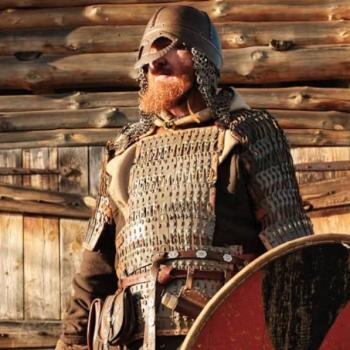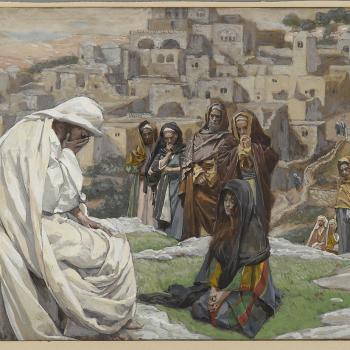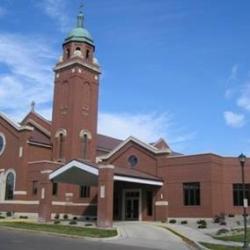
The Bible contains a lot of violence, much of it unjust by today’s standards. In this post I use findings of archaeologists that indicate that some of the worst violence, for example, the battles Joshua fought, didn’t really happen. I leave for the next post the question why these stories are in the Bible.
Episode 13-2 of the Rowing with Michael Series: A journey through the Jewish/Christian Scriptures in Verse and Commentary. Introduction and Contents for this series HERE.
People have tried to explain the violence in the Bible in various ways. One way that doesn’t work is to say those were violent times and you can’t expect the ancient Israelites to follow modern morality. The problem with that is that it’s not just the Israelites’ choosing excessive violence. God commands them to do it or even does it himself. The exuse of violent times does not work for God.
Joshua vs. just-war criteria
Some of God’s violence seems pointless, as when God slays 100 soldiers (50 at a time) to save Elijah from being brought to the court of King Ahaziah—and Elijah ends up going anyway. (2 Kings 1) Most of the really horrifying stories are in the Book of Joshua, Chapters 6-11. Over and over the Israelites engage in what we would have to call ethnic cleansing. And God commands them to do it! Here are some of the chilling details:
After capturing the city of Jericho, the Israelites “utterly destroy all in the city, both men and women, young and old, oxen, sheep, and asses, with the edge of the sword.” They spare a prostitute named Rahab and her family. See this post. But all the silver and gold and vessels of bronze and iron they put into “the treasury of the Lord.” (Joshua 6:19-21)
Then they march against the city of Ai. They round up and kill all the soldiers who ran away and then return to the city, which they “smote with the edge of the sword. And all who fell that day, both men and women, were twelve thousand, all the people of Ai.” (Joshua 8:24-25) They do the same to Libnah, Lachish, Eglon, Hebron, Debir, and Hazor. (Joshua 10:29 – 11:11.
To say the least, these battles do not meet the criteria the Church has established for just war. Some people say God needed to preserve the new monotheistic faith from contamination by Israel’s idol-worshiping neighbors, and the only way was to destroy the neighbors. Using that logic religious people have justified all sorts of atrocious acts in pursuit of supposedly noble ends. If that logic is God’s, then the devil is the lesser of two evils. Besides, the plan, if that’s what it was, didn’t even work. The Israelites went ahead and worshiped other gods anyway.
Doubts about the Bible stories
It helps a little that modern archaeology shows most of the battles never took place. Specifically, the cities mentioned in Joshua 6-11 didn’t even exist at the time that the events supposedly happened. That lets God off the hook. God couldn’t possibly have commanded the destruction of a non-existent city, even if a biblical author says he did. The Church tells us that human authors with human abilities and limitations wrote the Bible. We are free to hold that some of their interpretations of their own history are mistaken. They could have falsely attributed to God actions and ways of thinking that are merely human.
Still, why are these stories in the Bible? And what are we to make of a book that contains such things? How do we separate the merely human from the divine in the Bible? Should we even try to do that? These are difficult questions, but I don’t think they can be avoided if one wants to present biblical faith to a skeptical and often critical modern world. I have had to change my way of thinking about violence in the Bible. The next post will describe the way one scholar helped me do that.















